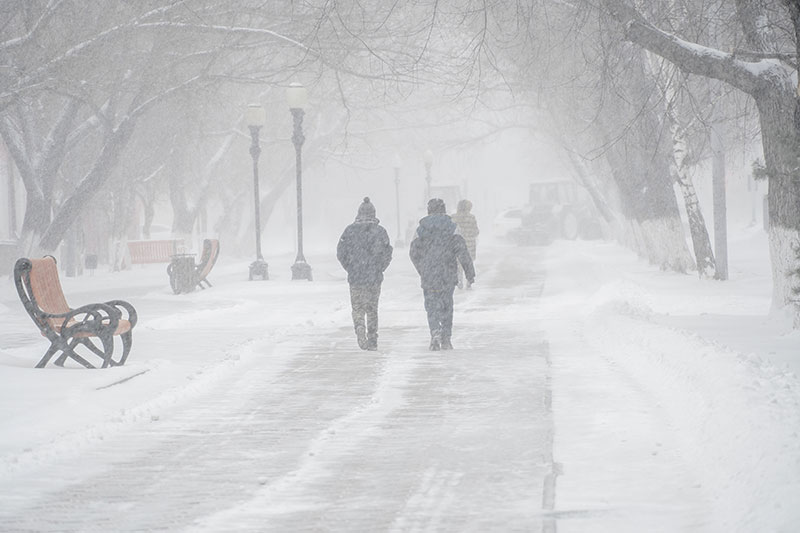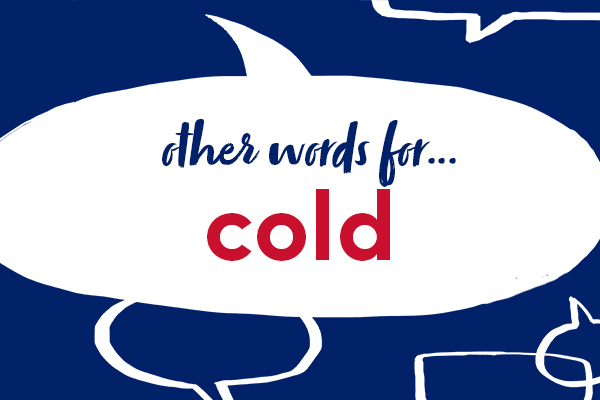The word ‘cold’ is common in English, and yet there are a number of more descriptive words you could use instead to be more specific and make your writing more interesting.

If you want to talk about slightly cold weather, here are some alternative words you could use:
| bleak | The weather can be quite bleak on the coast. |
| chilly | It was an especially chilly afternoon and the fire did little to warm the room. |
| cool | Anna took a breath of the cool morning air. |
| nippy | There was a nippy wind blowing under the door. |
| wintry | It was a grey wintry day and I had no desire to get up. |
However, if the weather is extremely cold, try these words:
| arctic (informal) | The toilet block had no heating and was positively arctic. |
| baltic (informal ) | The main problem is that the flat is baltic in winter. |
| biting | The biting wind seemed to go right through my thin jacket. |
| bitter | A bitter east wind was accompanied by flurries of snow. |
| freezing | Many people had to spend the night in their cars in freezing temperatures. |
| harsh | As we went further and further north, the weather grew harsh and unpredictable. |
| icy | An icy wind blew across the playground. |
| perishing | It was perishing and we had no choice but to invest in moon boots and ski jackets. |
| raw | The funeral took place on a raw December morning. |
To talk about how cold someone is feeling, here are some synonyms:
| freezing | Even with the extra blanket, I was absolutely freezing |
| frozen | I tried to warm my frozen hands at the fire. |
| numb | His hands felt numb with cold. |
| perished | I was perished – my own fault for not taking a jacket. |
| shivering | He threw his jacket around her shoulders to try and stop her shivering. |
Look at the Thesaurus entry for cold to find other synonyms and examples.
All opinions expressed on this blog are those of the individual writers, and do not necessarily reflect the opinions or policies of Collins, or its parent company, HarperCollins.




collins_dictionary_official
The home of living language. #wotd #wordlovers #collinsdictionary
Read our word of the week definitions and blog posts: